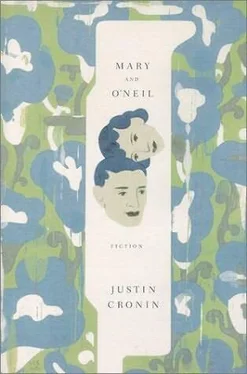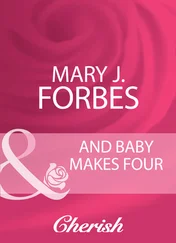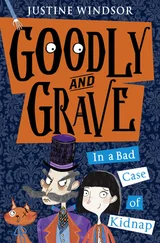Jack frowned hopelessly. “Why should I believe you? You just assaulted me, for Chrissakes.”
“Yes, but that’s all done,” O’Neil said.
At the hospital entrance Jack stopped. “Let me ask you one last thing. Do you even have the faintest idea why I did it?”
“Actually, no.”
“Fucking Saint O’Neil,” Jack said, shaking his head. “So perfect he doesn’t even know it.”
O’Neil left Jack with the children and went up to Kay’s room. “Breaking news. I just punched your husband.”
“Did you kill him?” Kay smiled weakly. “You look so happy.”
He showed her his bandaged knuckles. “Just minor damage. Would you like me to?” A joke: but he would do it if she asked.
Kay shook her head. “Maybe later.” She sighed deeply, haltingly. Two sentences, and already she was exhausted. “Right now I’d like to see my children, please.”
He brought the boys to her and waited outside with Jack. It was noon when they emerged: Noah and Simon looking confused and uncertain, Sam holding his face bravely so they wouldn’t know what was happening. Be strong, Kay had whispered to him. Help your brothers. O’Neil left Jack with Kay and took the boys to the cafeteria and tried to feed them, and an hour later Jack came down. O’Neil saw him first, as he passed through the door and stood a moment, drying his glasses and then his face with a handkerchief. Then he strode briskly to the table.
“Okay, boys,” he said, rubbing his hands together.
When O’Neil returned to the room, Kay was sleeping. The morphine button was in her hand, her thumb resting on it. Without opening her eyes she pushed the button. O’Neil watched as the morphine moved through her, like rings on a pond, easing her into a state far deeper than sleep and yet of little use. For years it had been just the two of them. Now, for the first time since Kay had gotten sick, he felt her exhaustion as if it were his own. He knew what she wanted, and wanted it too; he wanted her suffering to end more than he wanted her not to die.
“I’m not leaving,” he told her.
The nurse brought him dinner; he left the room only to go to the bathroom, and once to call Mary from a pay phone. It was happening, he told her. He couldn’t talk for long. Later that evening Kay awoke, moaning. “God, honey,” she said. Her eyes were open but unfocused. Could she see him? Did she know where she was? Her voice was etched with pain; her words seemed to hang in the air, not sounds alone but things with form and substance. “God, honey, God.” Then she was silent.
He spent the night in a chair by her bed, and the night after, and just as he promised, was there in the room when she died the next morning.
They went to Paris after all. O’Neil had thought to cancel the trip, but when, at the last minute, Mary’s fellowship came through, he agreed to go; there was no telling if she’d ever get the grant again. With the help of one of her professors they rented an apartment for the month of July in Saint-Germaine, a small town near the end of the Metro line where O’Neil had stayed with friends on a trip after college. O’Neil looked after the girls while Mary wrote or worked at the library, and on weekends they took long drives through the countryside in the car that came, unannounced, with the apartment-an ancient Fiat that stank of stale cigarette smoke and had an engine the size of a milk bottle. At night, when Mary stopped working, he cooked for all of them, trying new recipes with ingredients he’d picked up at the open-air market down the street. Even these simple excursions required a constant vigilance that left him dazed with adrenaline; trying to manage the girls and his awful French besides, he often asked for the wrong things entirely, or else bought gigantic quantities of the right ingredients by accident: a loaf of pâté the size of a shoe box, a liter of salt, an entire wheel of Roquefort cheese. It didn’t matter; Mary was working, the girls were enjoying themselves, Nora laughing herself senseless as the dog shit all over the sidewalks, Leah chatting away in a mishmash of French and English that sometimes seemed to be a language all its own.
“I feel so guilty,” Mary said to him one evening. They were lying in bed, a huge four-poster with a curtain. “Cooped up with Nora and Leah all day. You haven’t even been to the Louvre.”
He couldn’t have cared less about the Louvre. “What’s at the Louvre?” he said, laughing. “I’m fine, I’m perfectly happy.” He hugged her to reassure her this was so. “It’s nice just to be here, to spend so much time with the girls. I’ve been away too long.”
Nevertheless, he decided to go. The car would be too much trouble; he planned to use the train. It took him two hours to assemble his supplies and get the girls dressed and ready, and by then they needed lunch. After he fed them, Leah went down for a nap; by the time she woke up, whining for the cup of heated milk that was her habit, Nora was beginning to fade. She slept two hours, until four o’clock, while O’Neil read the Tribune, bouncing Leah on his knee. Then he heard Mary’s footsteps on the stairs.
“How was it?” she said happily. She piled her books onto the table and hugged the girls. “Did you like the paintings? Aimiez-vous les peintures?”
“Mona is in top form,” O’Neil said. “You know, I somehow always thought it would be bigger.”
Mary, crouched, studied him with her eyes. Her face fell with sympathy. “It didn’t work out, did it?”
O’Neil shrugged. “It’s not important,” he said.
Their last night, they hired a baby-sitter and went to eat at a café down the street. While they waited for their meal, they wrote their final postcards to friends back home: Mary’s family in Minnesota, Mrs. Carlisle, the couple next door who were watching over their house. O’Neil hadn’t seen the boys since the day after the funeral, when Jack had told him that he would be taking them back to St. Louis in August. O’Neil thought at first that he meant for a visit, but realized as they were talking that Jack meant permanently, to live. All of Jack’s family was there, and he would need their help raising the boys, especially Noah and Simon. He had found a teaching job there-a temporary appointment, but one which, with luck, could turn into something long term. He had already submitted his resignation and arranged to put the house up for sale. The move would be hard for Sam, he conceded, but in another year he would be off to college anyway.
O’Neil saved the last postcard for Sam. The boy had barely spoken to him since the day in the car when he had asked O’Neil-what? To be his father? O’Neil had never fully known what to make of the request. The boy had been in pain, no doubt, and still was. Sixteen years old, and all his life people had been asking him to be strong when others could not. Noah’s problems, the divorce, his mother’s illness. Perhaps all he had wanted was for someone else to carry his load. But what could O’Neil have done? He looked at the blank postcard-on the other side was a picture of the Eiffel Tower -waiting to find the words. But none would come.
“O’Neil?” Mary looked at him quizzically. “What’s wrong?”
“It’s nothing.” He capped his pen and did his best to smile. “I’ll see him when we get back. Whatever I have to say, I’ll think of it then.”
Mary offered her hand across the table. “I just want you to know how much this month has meant to me. I know how difficult it’s been for you this last year, and now, spending so much time without me to help, taking care of the girls…”
“Really, I was happy to do it. We’ve had a great time together. You’ve wanted to come back for years.”
“Still, it means something, O’Neil.” Her face and voice were serious, almost scolding. “It means something to me. I’m just telling you how thankful I am. With all you’ve done, I don’t think anyone has said that to you.”
Читать дальше












